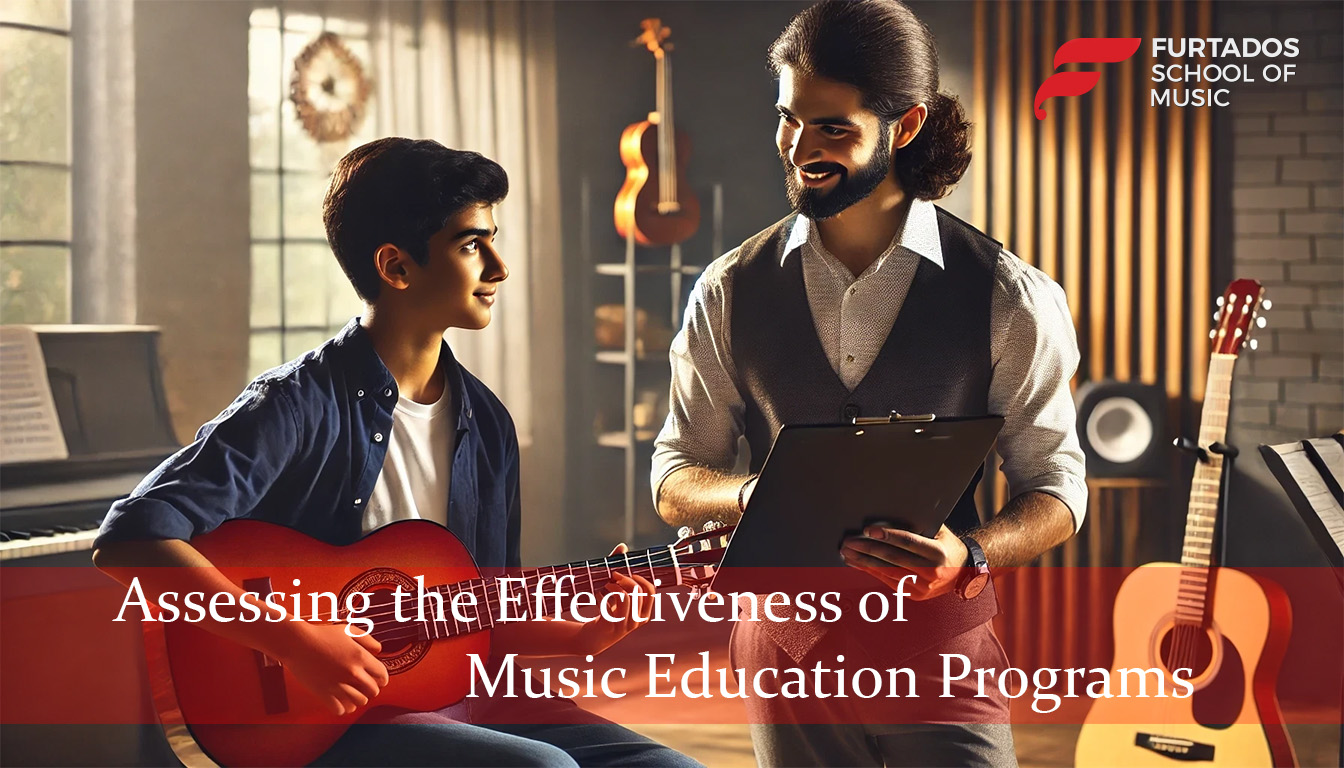Music education programs have a lot of benefits, and they are especially helpful for kids. All of these things are good for a child’s development: music helps them do better in school, makes them more socially smart, and gives them an outlet to express their talent. Children learn so much more when they are exposed to music with program evaluation features that constantly help them improve and outshine.
Music Education’s Impact on Student Learning
Music education enhances and strengthens children’s linguistic skills. Music stimulates the brain, and with its many sounds and lyrics, pupils are exposed to a wide range of vocabulary in a short period. Music also exposes students to foreign languages, laying the groundwork for their capacity to understand and communicate in such languages.
Music promotes superior memory skills. Have you ever heard a song for the first time in a long time and remembered all of the lyrics? This phenomenon affects non-musicians as well. Music has a way of “sticking” with us through captivating melodies and diversity of sounds, and when used correctly, it can be a tremendous tool for learning—just think of singing the ‘A, B, Cs’ or ‘The State Capitols’ song.
On the other hand, music education helps student performance metrics elevate by improving their mental capacities in a variety of ways. As previously stated, music increases memorizing skills. When preparing for a performance students must know all parts of music, not just song words. Students must recall rhythms, pitches, dynamics, and a variety of other components simultaneously. Students can then apply their memory skills in the classroom and throughout their studies.
The Wonders of Music Education Programs
Here are 10 benefits of music education that show why it should be an important part of student’s lives, both inside and outside of school.
- Language skills – Learning a musical instrument helps the brain grasp human language, which can aid pupils in learning a second language.
- Higher test scores – Research has shown that pupils who participate in a high-quality music education program in school outperform students who do not participate in music.
- Self-esteem – Music encourages pupils to attempt new things and gain confidence as they learn to sing or play an instrument. When students work together to achieve a common goal, they love knowing that their ‘voice’ and interests are recognized and understood by others.
- Listening skills – Music requires you to listen to yourself as well as the other members of the group. Musicians must hear tempos, dynamics, tuning, and harmonies. This promotes auditory development in the brain.
- Math skills – Reading music requires memorizing quarter, half, and whole notes, which are essentially fractions. According to Getting Smart, “When a music student spends time learning rhythm, he learns to count.” He is not counting numbers per such, but he is undoubtedly using logic to figure out the rhythms and bars and working his way methodically through the composition. Many musical notions have their mathematical counterparts.
- Making the brain work harder – According to research, a musician’s brain functions differently than that of a non-musician.
- Stress relief – We’ve all heard that listening to a favourite singer or song can improve our mood and help us relax. The same is true for composing music. It is a terrific outlet for children, letting them immerse themselves in something enjoyable and relaxing. I knew that no matter how anxious I was at school, I would always emerge joyful and calm from choir practice.
- Creativity – Music surely encourages children’s creative abilities. This may have an impact on their futures.
- Assisting special needs children – Music has a significant impact on children with special needs. It allows them to communicate and open up in ways they might not have been able to do otherwise.
As a result, despite cuts to music programs, schools are increasingly establishing music therapy after-school programs for students with impairments.
Social Benefits of Music Education
The mental benefits of music instruction are very beneficial to kids in schools; but, the social benefits are as wonderful! Music education necessitates teamwork and collaboration. Students improve their listening abilities as they play instruments together.
They must listen to others to properly judge loudness levels, dynamic implementation, and other factors. When it comes to elementary musical activities like rhythmic and melodic notation, teamwork and participation are essential. Students quickly learn to value others’ opinions and ideas, as well as how to effectively blend those concepts to fulfill the task at hand.
Other Advantages of Music Education
Music instruction promotes better coordination, especially hand-eye coordination. Musicians must multitask! They must perform numerous tasks at once, which improves coordination and further develops the brain.
Student musicians must read, interpret, and physically initiate music by playing their instruments. These processes are repeated throughout any musical performance, and even the youngest students gradually improve their coordination skills with sustained music practice.
Advanced Music Pedagogy by FSM
With a presence in 200+ schools and music centres, FSM aims to make Music Education Programs accessible and affordable across India. Whether you’re 4 or 70, we have a spot for you!
Our diverse team of world-class educators from India and abroad are extensively trained to provide enjoyable and engaging music sessions. We offer a wide range of programs, including piano, electronic keyboard, guitar, drums, violin, and vocal training, catering to all levels of expertise.
FSM combines modern teaching methods with traditional concepts for a well-rounded music curriculum that comes with assured outcome assessment. We are dedicated to delivering internationally benchmarked music education, helping you achieve your musical goals and shape your career.
Join us and make your musical dreams a reality!
